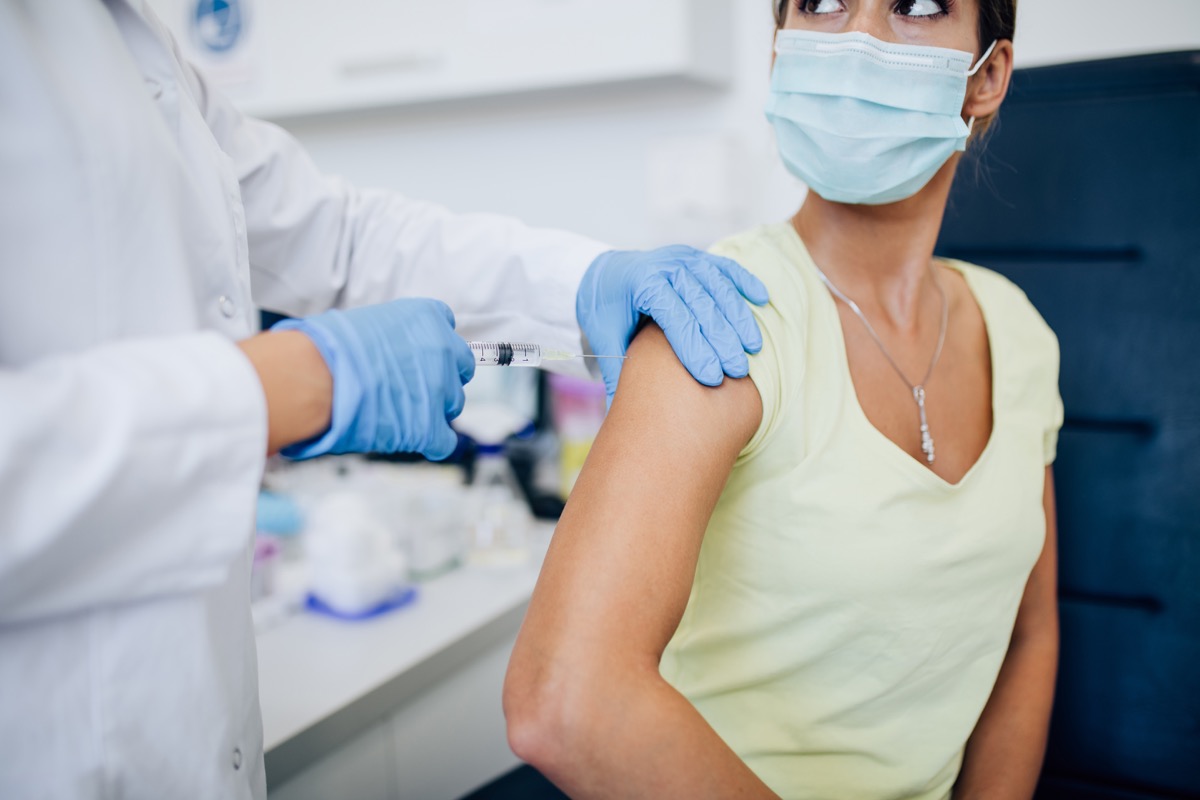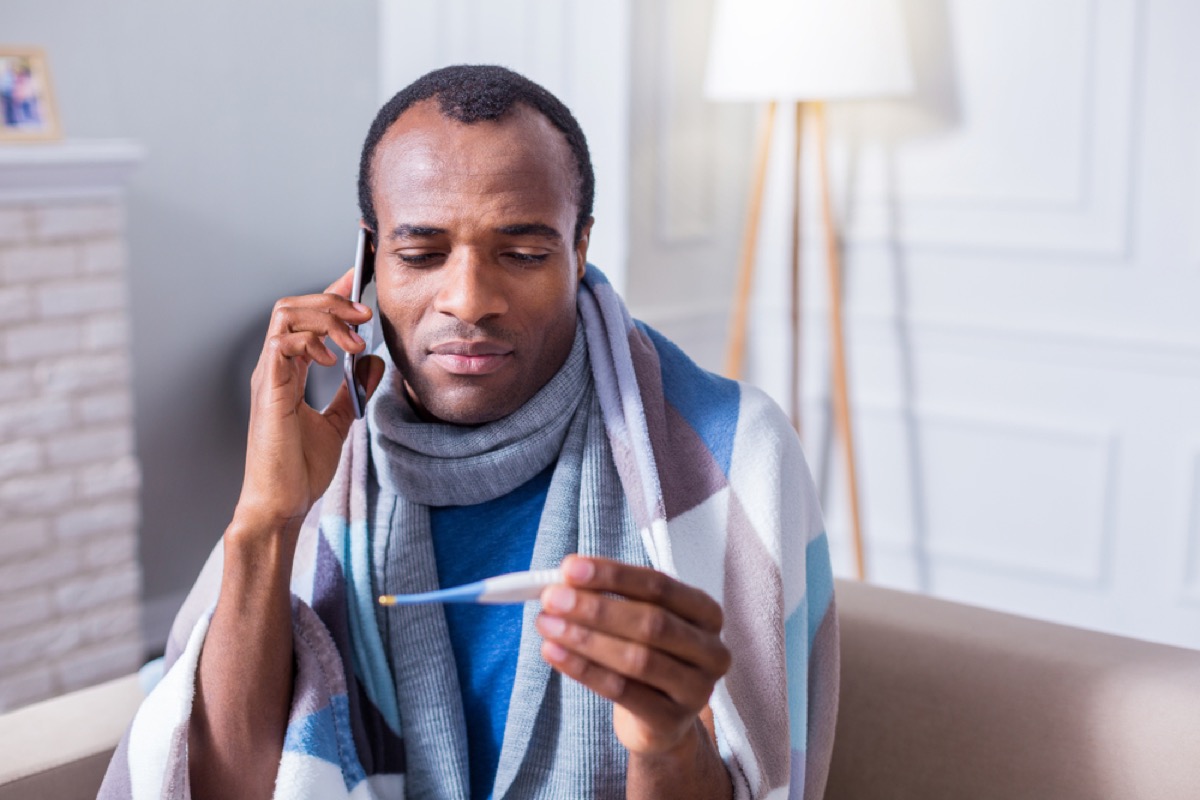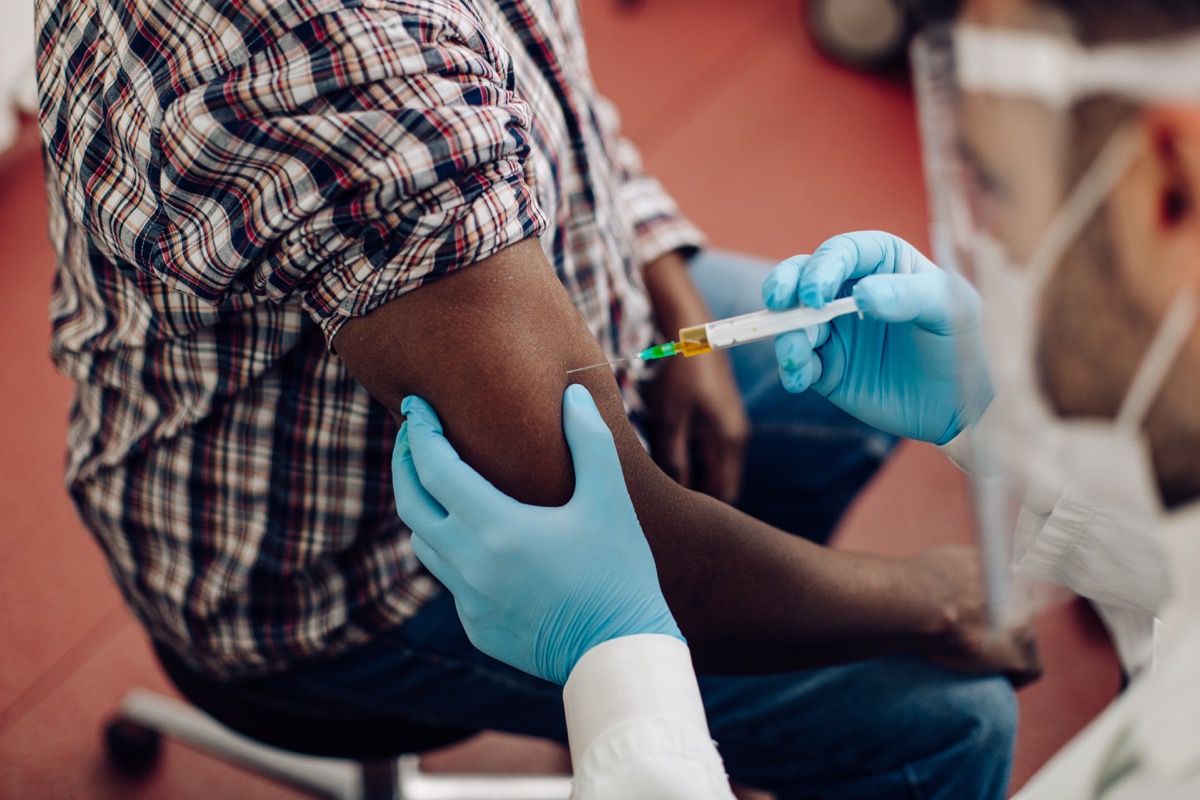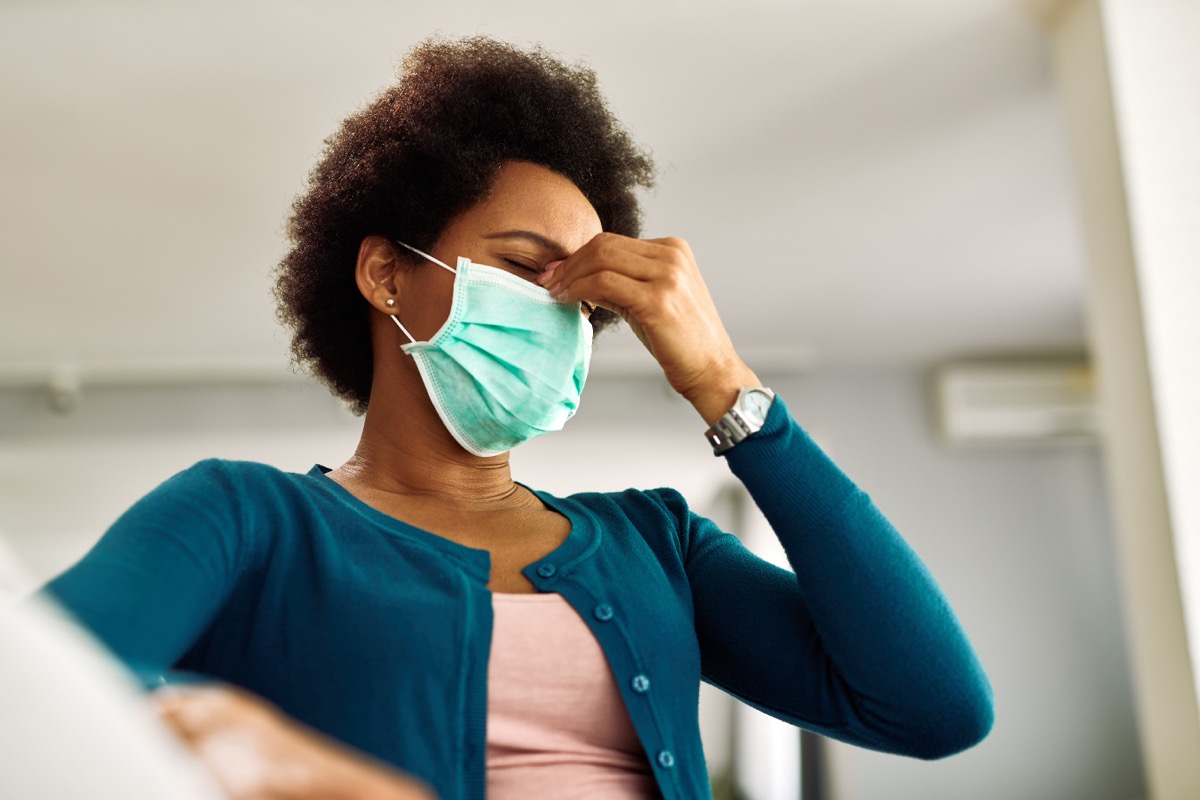Pfizer’s and Moderna’s second doses are meant to be spaced out—the second shot should be given 21 days (for Pfizer) or 28 days (for Moderna) after the first. But what if you get sick in the time between those doses? According to Fauci, you may have to modify your schedule. On April 22, Fauci took over the White House COVID-19 Response Team’s Twitter account to respond to questions. “If a person who has COVID and has had their first (Pfizer) vaccine, can they keep their scheduled appointment for the second dose, which will be eight days post-isolation?” one person asked. Fauci advised that “this person should wait until they have recovered from illness (if sick) and have met the criteria for discontinuing isolation to receive the 2nd shot.” And for more vaccine news, Pfizer Just Issued This Alarming Vaccine Warning. According to the Centers for Disease Control and Prevention (CDC), when you can end isolation depends on a few different factors. If you have symptoms, you can end isolation 10 days after your symptoms first appeared, after at least 24 hours with no fever, and when other symptoms are improving. If you have COVID but are not showing any symptoms, you can end isolation after 10 days have passed since the date you had your positive test. Once you meet these requirements and can end isolation, you can also go ahead and get your second shot. Although Pfizer and Moderna’s second doses are meant to be given three and four weeks apart, respectively, the CDC says that the second dose of these vaccines can be safely given up to 42 days after the first shot. And for more on the COVID vaccines, This One Vaccine May Protect You Against All Variants, New Study Says. While getting COVID between shots is possible, once you’re fully vaccinated—that is, two weeks post-second dose—you’re highly unlikely to get sick. According to an April 2 study from the CDC, under real-world conditions, the Pfizer and Moderna vaccines were 80 percent effective 14 days after the first dose of the vaccine, and 90 percent effective 14 days after the second dose. During his Twitter Q&A, Fauci acknowledged the small possibility of getting COVID more than 14 days after the second shot. He noted that, “Authorized vaccines are highly effective; however, a small percentage of people fully vaccinated against COVID-19 will still develop COVID-19 illness (called ‘breakthrough’ cases).” The CDC previously told Best Life that 5,800 breakthrough infections had been reported as of April 13. With over 75 million people fully vaccinated in the U.S. as of that date, these 5,800 cases represent only 0.008 percent of the vaccinated population. And for more COVID vaccine news delivered straight to your inbox, sign up for our daily newsletter. The CDC told Best Life via email that certain groups seem to be more susceptible to reinfection after being fully vaccinated, according to the current data. So far, 40 percent of breakthrough cases have been in people aged 60 or older. It’s not only about age either: When looking at breakdowns by gender, the CDC found that “65 percent of the people experiencing a breakthrough infection were female.” And for more on the future of vaccination, Pfizer’s CEO Just Said How Often You’ll Need a COVID Vaccine.ae0fcc31ae342fd3a1346ebb1f342fcb



